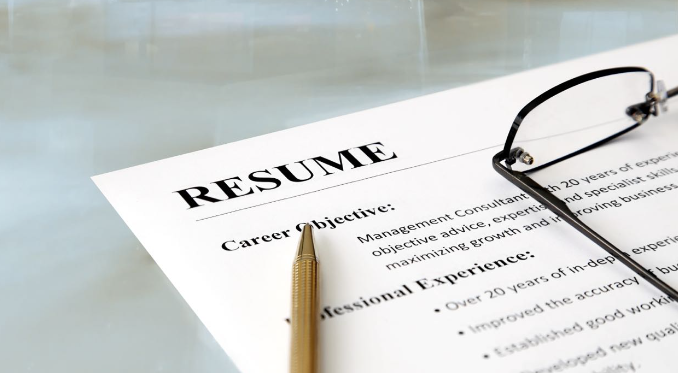Do you find writing your first resume to be intimidating? It’s okay to be worried. That you have little to no relevant work experience is also understandable.
Creating your first resume can be a daunting task, especially for students who may not have much work experience to showcase. However, your first resume is an essential tool in your journey toward securing internships, part-time jobs, or even your first full-time position. Here are some key things that students should know before they start crafting their very first resume:
Keyword Research
Make a list of the pertinent keywords you find on relevant job postings before you begin writing your first resume. These are some of the skills that are commonly mentioned in the job posting. Sign up for a few online job sites. Look for entry-level positions in your field and read the job description in its entirety.
The skills and job roles that the employer has posted on the job advertisement must be carefully read. This will provide you with an excellent understanding of the abilities and specific terms that companies in your sector are looking for. Keep all such words in mind. Select the keywords that best align with your qualifications and the job requirements from your list.
Stick to a Standard Format
The process of creating your first resume is thrilling. Students occasionally have a tendency to be overly imaginative and mess up their resumes. Some students produce incredibly boring resumes and seem incredibly uncreative. Upon first glance, those two resumes will be thrown in the trash.
You have to work with a standard format and adhere to it. This is not how your resume should appear:
- Not a party invitation: Avoid using colorful fonts. Your resume should appear professional and not like it was created by a kid.
- Not a banner: There shouldn’t be too much on your resume. It does not, however, imply that you create a resume that resembles a banner advertisement. Your CV cannot read “Hey, sup? I’m a recent marketing graduate; hire me right now!
A typical resume starts with your name and includes your contact information. It is succeeded by an aim. You include a list of your skills right below the objective. After this comes work experience, if any. You must include your educational history below that. Finish the resume by highlighting your noteworthy honors and accomplishments.
Understand the Purpose of a Resume
Before diving into the resume-building process, it’s crucial to understand the primary purpose of a resume. Your resume is not just a summary of your educational and work history; it’s a marketing tool designed to highlight your skills, qualifications, and accomplishments. It’s your chance to make a positive impression on potential employers.
Include an Objective
Under this section, a few lines must be written. Your objective defines what you’re searching for. This is a brief synopsis of your education and professional aspirations. Your unique career objective should include your desired career path. It should not be longer than three sentences.
We can assure you that many students end up with identical objectives after copying them verbatim from the internet. What happens to their resumes, you ask? Indeed, they are all disposed of in the trash. Your objective ought to encapsulate your career aspirations. Thus, make it original and write it yourself.
Highlight Your Skills
You have to include a list of your skills right below the objective. Use the keywords you’ve studied to help you write the skills. The most crucial section of your initial resume should be this. You have to enumerate every necessary and pertinent skill. Read up on the position for which you are applying before writing your skills.
Emphasize on your resume all the skills that the employer is looking for. Many employers don’t even bother to read further—they just add up your skill set to what is needed for the position. Possessing a skill set that aligns with the requirements increases the likelihood of getting an interview.
Maintain Relevance
The likelihood is that you won’t have any relevant work experience to list on your first resume. Since the majority of students lack your experience, don’t worry about it. Refrain from bringing up any experience that is unrelated to the position you are applying for.
For example, your web development internship will not impress the employer if you are applying for a sales executive position. The same guideline held true for listing your accomplishments and interests in hobbies on your resume. You should include relevant interests and accomplishments on your list.
Emphasize Your Education
In order to land your first job as a student, you need to highlight your educational background. The most valuable thing on your resume is this. Prioritize your highest degree first, then your lesser degrees.
The name of your alma mater and your grade point average must be mentioned. Don’t be afraid to mention any academic successes you may have had. On your resume, you can boast about your outstanding academic performance.
Be Honest
This is a crucial matter. Under no circumstances may you make up information about your accomplishments, education, or abilities. Be truthful, especially when it comes to your educational background. We assure you that the truth about you will eventually surface. For this reason, you should never lie on your resume as it could cost you the position.
No Mistakes
It should go without saying that your resume is error-free. Before sending out the resume, it must be proofread multiple times. There should be no typographical, grammatical, or punctuation errors.
If you need assistance, you can ask a teacher or use the online editing tools. As an alternative, you can ask for assistance from a career counselor or senior colleague in the field.
Once you have prepared the final draft of the resume, take a few prints and ask your elders to read it. This includes your parents, older siblings or friend who’s a working professional. They all have been there and can guide you with anything that needs improvement on your resume.
Rounding Up
As you navigate the process, keep your objectives clear, your contact information professional, and your content tailored to the job you’re pursuing. Your education and relevant experiences should take center stage, showcasing your academic achievements and practical skills gained from internships, part-time jobs, or extracurricular activities. Highlight your skills and quantify your achievements to leave a lasting impression on potential employers.
Well, now you know everything that is needed to come up with an ideal first resume. Since its your first CV, keep it short and precise. Go on, get that dream job.




